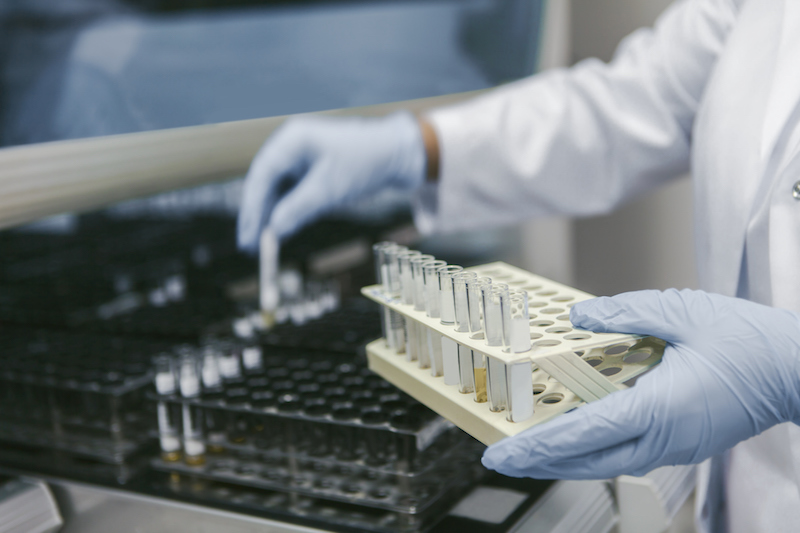
Despite ethical concerns, scholar argues that gene editing of human embryos should not be banned.
Scientists now have the ability to manipulate the DNA of human embryos in ways that could allow them to eliminate genetic diseases, such as hemophilia, from a child’s genes before birth. This type of gene editing has the potential to correct genetic disease at the source. It also brings science closer toward the specter of designer babies engineered to have desirable traits, raising ethical concerns about eugenics and the risks of harms from unintended changes to the human genome.
In a recent paper, Penn State Law Professor Eileen Kane explains that the ease with which new technologies can be used to edit the cells responsible for reproduction—human germlines—has prompted cries about the need for regulation of these technologies. Kane argues that important ethical questions unique to germline editing—which include weighing risks and benefits, considering the rights of parents and human dignity, and avoiding eugenics—require answers. She suggests, however, that these are are not actually novel questions if gene editing is viewed as a new technique that constitutes a step in the current direction of effective genetic engineering, rather than a fundamental shift from earlier technologies that affect reproduction.
To conduct the new kind of gene editing that has raised recent concerns, a tool called CRISPR works with an enzyme to target and cut a specific sequence of DNA, altering that specific site. Although other known techniques can cut DNA at specific locations, the CRISPR system is easily programmable and deliverable to cells and has been widely adopted.
Although changes to adult cells only affect the individual being treated, changes to germlines can become a permanent alteration to the human genome. For example, giving an embryo a novel gene to make its cells HIV-resistant could serve as a powerful tool to improve human health, but if introduced without knowing the full extent of it effects, unanticipated harms could result and could be passed on to future generations.
Kane explains that a 2015 study performed in China set off alarm bells in the international community when researchers used CRISPR to edit human embryos. The researchers performed the experiments on non-viable embryos and had only limited success in making the edits. But other researchers have since performed studies on viable embryos, including one study in the United States that focused on editing a specific mutation.
In contrast to an international willingness to move forward with experiments that would allow gene editing of human reproduction, the U.S. government has opposed research on human germlines, according to Kane. In 2015, the White House stated, “The Administration believes that altering the human germline for clinical purposes is a line that should not be crossed at this time.” That same year, in an appropriations bill, Congress prohibited the U.S. Food and Drug Administration (FDA) from using federal funds on research that would introduce a modification that could be passed on to future offspring in an embryo. These statements by the executive and legislative branches send a clear message that the U.S. government does not support genetic editing of embryos.
This message is not surprising given the existing restrictions on research dealing with embryos. Beginning in 1996, Congress has passed a rider as part of the annual appropriations bill that bans the use of federal funds for research that creates embryos or in which an embryo is destroyed. Kane explains that this limit on federal funding, although reducing the number of studies, does not outright prohibit them due to the availability of private funding for such research.
Limitations on germline editing will have little impact on the regulatory scheme for gene editing because gene editing fits into the existing regulation of research that aims to treat genetic diseases in patients by changing their DNA, Kane explains. The National Institute of Health (NIH) provides most of the federal funding for biomedical research. A group within the NIH, called the Recombinant DNA Advisory Committee (RAC), provides oversight and approval recommendations for studies that involve manipulated DNA. Recommendations for gene editing experiments involving CRISPR closely track previous gene therapy experiments, only with a different tool. Consequently, RAC makes recommendations on research involving CRISPR technology in accordance with existing NIH Guidelines, which prohibit funding studies involving germline alterations. Meanwhile, any clinical trials that use gene therapy products in humans also require approval from FDA.
Although RAC will not approve experiments that involve germline genetic modification, and states may prohibit this type of research, no federal prohibition of genetic modification of human embryos exists.
Kane suggests that for several reasons, such a prohibition is not necessary. At the most basic level, she points out that the current technology has not advanced enough to successfully edit human germlines. Assuming that the technology advances to the point where it could be used to change the DNA of a baby developing in the womb, past public opposition to cloning suggests that the public would not support that kind of intentional manipulation of the genome. Following the successful cloning of Dolly the sheep in 1997, the scientific community held international deliberation on the issue and came to a consensus to prohibit it.
At the other end of the spectrum, ethical deliberations have resulted in tentative approval of using modern technology to select an embryo’s DNA. For instance, parents using in vitro fertilization can currently screen embryos for genetic diseases. Furthermore, a 2017 National Academy of Sciences report published the consensus of the scientific community endorsing gene editing within existing regulatory frameworks. This endorsement included the editing of human embryos, recognizing potential benefits to be gained from such research and stating that such studies would be ethical as long as proper precautions were in place.
CRISPR technology has rapidly advanced the ability of scientists to manipulate the human genome. This technology will inevitably continue to develop. As Kane states, this will require “consideration of divergent views on ethical, philosophical and social implications of germline genome editing.” Because of their decisionmaking authority on ethics, FDA and the RAC will play key roles in overseeing these developments and measuring public opinion.



